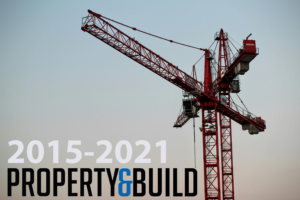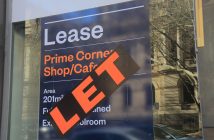Takapuna went into the first lockdown with an office vacancy rate considerably lower than Auckland’s CBD, and still the North Shore metropolitan centre’s commercial occupancy remains high

In March, Colliers International reported that Takapuna’s office vacancy rate had fallen to 4.5% – down from 5.1% in September 2019. In contrast, Auckland CBD’s overall office vacancy rate increased from 4.7% in December 2019 to 6.3% in June.
While pleased with the high occupancy rates, the Takapuna Beach Business Association (TBBA) is now concerned many office employees will spend more time working from home following Auckland’s latest lockdown, impacting the town centre’s foot-traffic and retail and hospitality patronage.
“Takapuna’s commercial occupancy is holding up well, but that doesn’t mean every desk will be occupied. Like other associations, we encourage our office-based businesses to think about the impact their workers’ absence has on our town centres post-lockdown,” says TBBA chief executive, Terence Harpur.
A Colliers survey has revealed 37% of workers would like to work remotely for 1-2 days per week, and many have been.
Chris Dibble of Colliers says Takapuna is not alone in maintaining strong occupancy rates, despite the economic uncertainty. The non-CBD metropolitan office market, he says, typically fairs better than the CBD office market in periods of downturns given the lower levels of new supply under construction.
What’s more, the fact that office leases and operating expenses also tend to be lower in centres like Takapuna enables more businesses under financial pressure to stay put, while attracting additional SMEs, in particular, out of the central city.
“A lot of people who have been working in the CBD for years, but are then forced to work from home, are now contemplating the likes of a smaller office space with lower overheads, which might also be closer or easier to access for many employees,” says Harpur.
“As was seen in Christchurch after the earthquakes, but significantly less dramatically, we’re anticipating a bit of a CBD exodus and places like Takapuna will benefit.”
“With the promise of dramatically improved public spaces, pedestrian connectivity, and more carparking than ever before, Takapuna is looking positively towards 2021 when key ribbons will be cut.
“In 2016 the Unitary Plan zoned central Takapuna a Metropolitan Centre, and that is now well and truly being realised. We’ve already seen some high-quality residential apartments go up and we’re grateful Auckland Council prioritised Takapuna in its recent emergency budget, enabling our town centre and transport upgrades to proceed.”
He says while central Auckland is experiencing office vacancy increases and the loss of many Airbnb guests and international students in its residential stock, the prospect of living, working, or investing in a beachside community like Takapuna is increasingly attractive.
“Takapuna is in a very fortunate position. We’re going into this period of global uncertainty investing more than $50m-plus to modernise our town centre. When the city, country and world rise again, Takapuna will be in great shape to take off.
In the meantime, the business association is encouraging those workers already based in Takapuna to spend more time in the town centre, once a more normal routine returns.
 Terence Harpur
Terence Harpur
Takapuna Beach Business Association
(021) 187-3715



